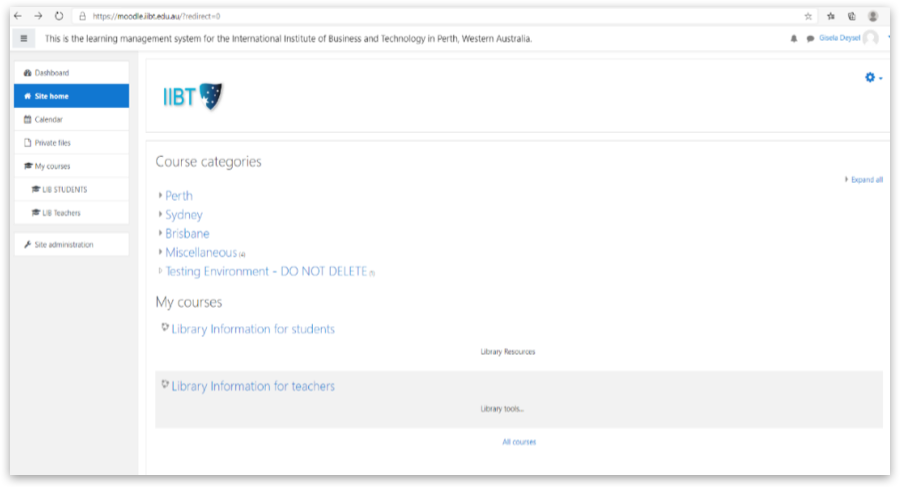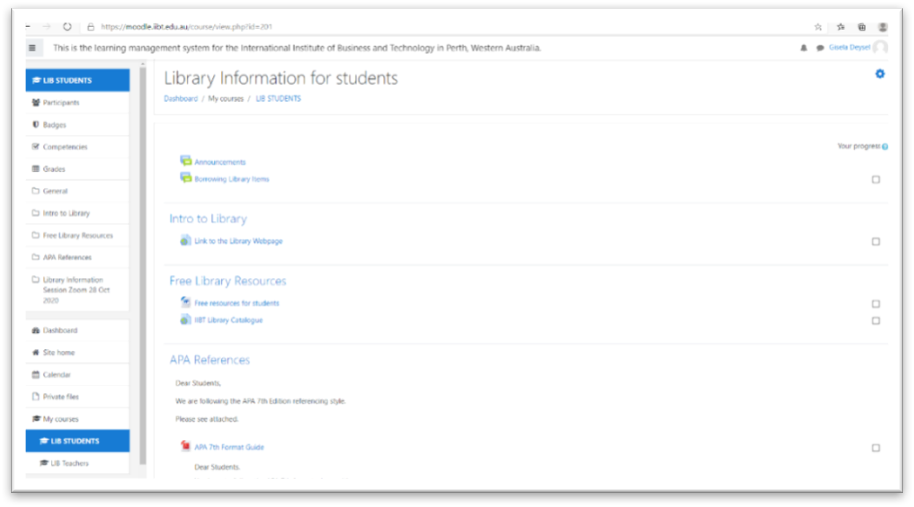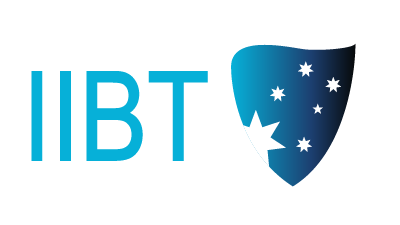English Language and Study Assistance Programs
Successful Transitions
Students can access the “Successful Transitions China-Australia’s” website provided by Murdoch and the Creative Commons license via https://creativecommons.org/licenses/by-nc-sa/4.0/
Important information about the above-mentioned license Attribution-Non-Commercial-ShareAlike 4.0 International (CC BY-NC-SA 4.0) Additional information: You are free to:
- Share— copy and redistribute the material in any medium or format
- Adapt— remix, transform, and build upon the material
- The licensor cannot revoke these freedoms as long as you follow the license terms. Under the following terms:
- Attribution— You must give appropriate credit, provide a link to the license, and indicate if changes were made. You may do so in any reasonable manner, but not in any way that suggests the licensor endorses you or your use.
- Noncommercial— You may not use the material for commercial purposes.
- Share Alike— If you remix, transform, or build upon the material, you must distribute your contributions under the same license as the original.
- No additional restrictions— You may not apply legal terms or technological measures that legally restrict others from doing anything the license permits.
(“Creative Commons — attribution-noncommercial-ShareAlike 4.0 international — CC BY-NC-SA 4.0,” n.d.)
Resources for Students from Successful Transitions China - Australia
Briefing Notes:
These provide students with information to help them better understand the Australian learning and teaching context.
- Commencing study in Australia: A quick reference guide for Chinese students
- Developing skills in turn-taking, discussion, and critical dialogue
Handouts:
These connect to specific teaching sessions and students should use them as and when directed by their lecturer.
- Academic writing
- Being in control and learning by reflecting
- Communicating with and across cultures
- Connecting theory and practice
- Learning in a different cultural context
- Note-taking strategies for lectures and seminars
- Organising ideas: summary and synopsis
- Participating in group discussions
- Reading and summarising formal language
- Reading critically
- Reading: skimming, scanning, and previewing
- Setting the scene for study In Australia
Videos
- Click here to view videos by two Chinese students, Jessie, and Leanne, discussing their experiences of postgraduate study in Australia, including the challenges of thinking critically and reading widely.
COM102 Applied Communications Unit Outline
- This compulsory unit is vital for higher education students to develop their effective study skills for a successful transition to tertiary education. Topics covered include:
- Research skills
- Critical thinking
- Referencing skills
- Academic writing
- Principles of good academic writing
- Grammar, punctuation and spelling
- Face-to-face communication
- Teamwork
- Presentations
- Interpersonal skills
- Intercultural communication
Please note that this compulsory study unit is delivered to students enrolled in both IIBT Diploma of Business Administration and Diploma of Information Technology courses. For in-depth information, please see the Unit Outline in Moodle.
Research and study skills
IIBT Library
Students can contact the Librarian if they need any assistance with their research and study skills. The Librarian can help students with sourcing credible and reliable resources for students’ studies and assessments. For example, the Librarian can assist students with the following research and study skills:
- How to search online databases such as EBSCO and EBSCO Explora databases
- How to search the online library catalogue to find physical books and other resources
- Informing students about the APA 7th edition referencing guide and other referencing tools to help them with proper referencing guidance
- How to avoid plagiarism and the importance of copyright
References
Resources for students. (n.d.). Successful Transitions: China- Australia. https://chinapostgraduates.murdoch.edu.au/rs-resources-for-students/
Course Attendance and Progress
Students must make themselves familiar with attendance and course progress requirements of International Institute of Business and Technology prior to commencement at IIBT.
Attendance
Attendance at scheduled classes at IIBT is an essential strategy for education success. All enrolled students should be aware that attendance in classes, engagement and active participation, is one of many key indicators in determining the successful course progression of an international student. Therefore, attendance of all international students enrolled at IIBT will be diligently monitored and recorded by lecturing staff.
ELICOS students, specifically, must attend minimum 80% of scheduled contact hours of their study period. English language lecturers will record students’ attendance, and this will be strictly monitored. In line with IIBT Attendance Policy, students whose attendance falls below 80% may have their Confirmation of Enrolment (COE) cancelled, after receiving Warning Letters and an Intention to Report Letter.
Course Progress
In line with its Course Progress Policy and Student Retention and Progression Policy, IIBT will monitor, record and assess the academic performance of all enrolled international students to ensure that they are given every opportunity to achieve the required satisfactory academic progress for each unit of the course they are enrolled in. IIBT students’ academic progress is reviewed each study period (term or trimester, as appropriate). IIBT is required to report an international student via Provider Registration and International Students Management System (PRISMS) to the Department of Home Affairs if the student has been assessed as not achieving satisfactory course progress for two consecutive study periods.
Satisfactory course progress at IIBT is defined as:
- Higher Education Student (studying a Higher Education Diploma Program)- successful completion of 50% or more of enrolled units within each study period.
- Vocational Education & Training (VET) Student- must be marked as Competent (C) in 50% or more of the units/subjects delivered in a single study period.
- ELICOS Student – must achieve the required pass marks as advised in the course outline for each language proficiency level/ each core skill.
IIBT Lecturing staff and IIBT Academic Management Team will use a variety of assessment methods to deem whether a student is ‘at risk’. These may include, but are not limited to the review of:
- The student’s attendance record
- Class participation and engagement in group collaboration
- Late submissions of assignments
- Resubmissions/resits
- Requests for extension of class work or assignments
- Request for additional help with assignments or class work
- Feedback from other lecturers
- Fail grades or Not Yet Competent grades on assignments
- Results of assignments and units/subjects
International students enrolled at IIBT, whenever experiencing difficulties in their studies, are encouraged to contact or speak with their lecturer or the IIBT Student Welfare Officer, and/or a member of the Academic Management Team, at the earliest possible opportunity.
In line with IIBT Course Progress Policy and IIBT Student Retention and Progression Policy, if an international student enrolled at IIBT is identified as not making satisfactory course progress, or the student is placed on the ‘IIBT At-Risk Student Register’, the student will be put on an Intervention Strategy (also known as IIBT Intervention Strategy Performance Contract). The intervention strategy processes are designed to support international students to successfully continue and complete their studies in the timelines required.
If an international student enrolled at IIBT receives a notification that he/she is maintaining unsatisfactory course progress, or has been identified as potentially being ‘at risk’, the student should act on the advice in the letter and attend the scheduled intervention strategy interview with relevant staff and follow the processes set out in the individualised support/intervention strategy plan. IIBT Lecturers and relevant members of IIBT Academic Team are to continue to monitor the academic progression of the student and review the results at the end of each study period.
Where a student has demonstrated unsatisfactory course progress in 50% or more of the units attempted in any 2 consecutive study periods, IIBT Student Services Officer will provide written evidence to the student of IIBT’s intention to report their unsatisfactory course progress to the Department of Home Affairs and provide additional advice and support where required. The student will be informed that they have 20 working days to submit their appeal in writing.
International students enrolled at IIBT have the right to appeal a decision about their attendance or course progress.
Complaints and Appeals
In line with IIBT Complaints and Appeals Policy, when a student lodges a formal internal complaint, IIBT Student Services Officer will provide the complainant with a copy of the Complaints and Appeals Form and will record the complaint or appeal on receipt of the signed and completed form.
Within 10 working days, IIBT will place the complaint or appeal on the agenda for the Management meeting or Academic Director to consider, and will advise the complainant of the outcome in writing within 10 working days from the receipt of the complaint, including detailed reasons for the outcome. IIBT will advise the complainant about the right to access an external complaints handling process at minimal or no cost if they are not satisfied with the outcome, furthermore, it will provide contact details of the external complaints and appeals body.
Should the internal or external complaint handling or appeal process result in a decision supporting the complainant or appellant, IIBT will promptly advise them of the outcome and implement with immediate effect any decision and/or corrective and preventative action required.
All issues arising from complaints and appeals reviewed by the Management meeting/Academic Director will be used to eliminate or mitigate the likelihood of reoccurrence.
All communications arising from the complaints process will remain confidential except to the extent necessary to give effect to the Complaints and Appeals Policy or when a party to the complaint or appeal requires reasonable access to such records.
Records of all complaints/appeals and their outcomes will be securely stored for a period of at least five years.
The following policies can be obtained here http://www.iibt.edu.au/policies-procedures/:
- IIBT Student Attendance Policy
- Course Progress Policy
- Student Retention and Progression Policy
- Academic Status and Termination Policy
- Complaints and Appeals Policy
Library Support
The IIBT Library provides the following support to overseas students to enable them to achieve their expected learning outcomes.

Students can join the IIBT Library for free. Students need to present their Student ID card to borrow physical resources from the IIBT Library.

Students can search the online library catalogue via http://library.iibt.edu.au/ for physical resources held in the library. Items can be borrowed free of charge. Costs only apply when library items are returned late or in case of lost or damaged items.

Students can request Inter-library loans (ILLs) when items are not held in the library. This is a free service to students.

Students can access the IIBT Library website via http://www.iibt.edu.au/library/ to search for library information, free online resources, online databases, and to seek library assistance.
Students can access the online EBSCO database for free via http://search.ebscohost.com/login.aspxauthtype=ip,uid&group=main&profile=ehost&defaultdb=bsh by entering the User ID and Password.
Students can also access the online EBSCO Explora database for free by entering the User ID and Password.
Students have access to free suggested online resources via http://www.iibt.edu.au/library/#1598504551049-2109398e-2500
Online resources include:
- Google Scholar
- Directory of Open Access Journals (DOAJ)
- VOCED plus
- LOADB
- Open textbooks
- Project Gutenberg
- Internet Archive

Students are encouraged to join other libraries too; examples of other libraries are provided for students. Students can access these libraries online and it is free to join. Please note that other libraries have their own fees attached to their library services provided.
Students have the option to message the Librarian online via the “Send message to the Librarian” to ask a question or to seek information from the IIBT Library.
Students are informed about copyright and about the importance of copyright regulations.
Information is provided on the importance of creative commons. Examples to free images are provided to students.
A guide to scholarly journals is provided to assist students with online scholarly journals and information.
Support is provided to students in regard to referencing. Examples of the APA 7th edition is provided on the Library webpage.
Students can also access Moodle for library support and information. Please see screenshot below.

The IIBT Library provides free online library resources to students via the Moodle portal. Please see screenshot below.

Free resources for students:
https://www.bartleby.com/titles/
Students can access the APA 7th edition referencing examples via the Moodle portal. Please see screenshot below.

Students also have access to a hardcopy of the APA referencing book, which can be borrowed from the IIBT Library.
Other IIBT Library support
Students can email the Librarian if they required any library support.
Students can call the Librarian if they required any library support.
Students can make an appointment to see the Librarian in regard to finding appropriate resources for assessments, APA 7th edition referencing, EBSCO database searching, online resources, copyright, creative commons, etc.
The Librarian provides in-class library and information sessions for students at the Orientation and before students’ first assessments. These information sessions are normally an hour long and include the following topics:
- Finding appropriate online information resources
- How to search the IIBT Library’s online catalogue for books and other resources
- Searching the EBSCO database and other online databases
- How students can employ their research study skills to help them find suitable information resources for their studies
- Referencing skills, including using MS Word to compile an APA referencing list
- Referencing tools and tips are mentioned in the sessions to inform students about useful referencing tools, i.e. Citefast, RefMe, etc.
- Information about copyright
- Information about plagiarism
- Access to open source and free online journals, such as DOAJ, JURN, etc.
- How to employ Google Scholar to search for appropriate information resources. Students are encouraged to attend these valuable information sessions, especially during Orientation
The Librarian provides Zoom sessions to inform students about the library, library resources, referencing guidelines, copyright, online database, and other library services.

